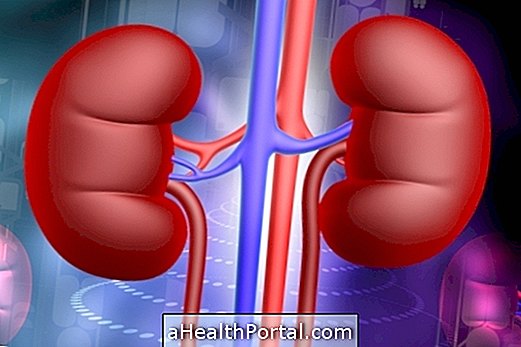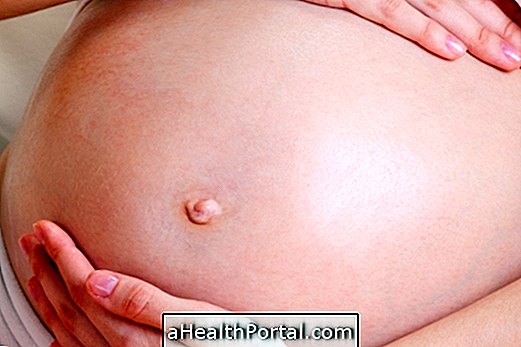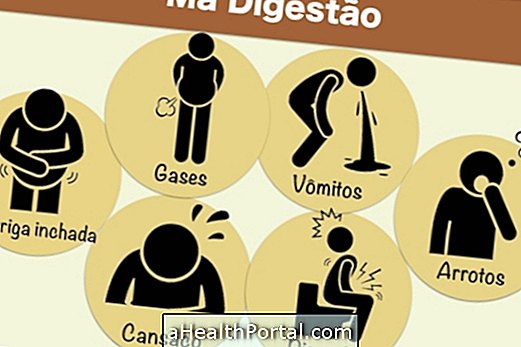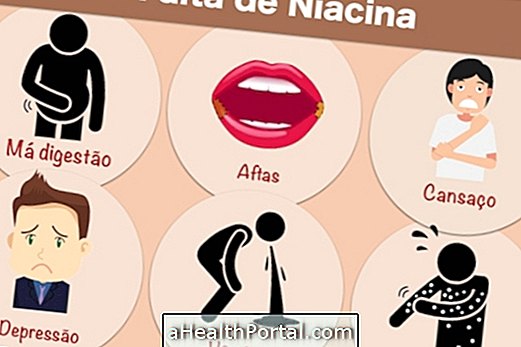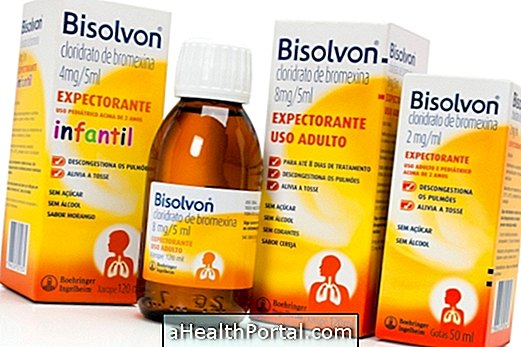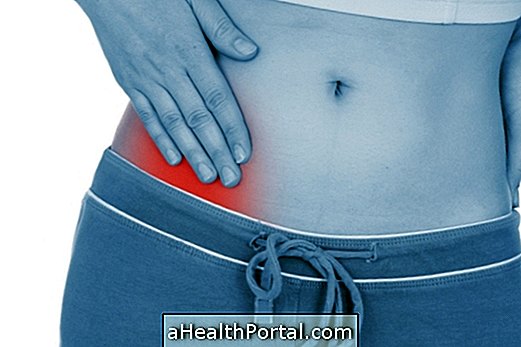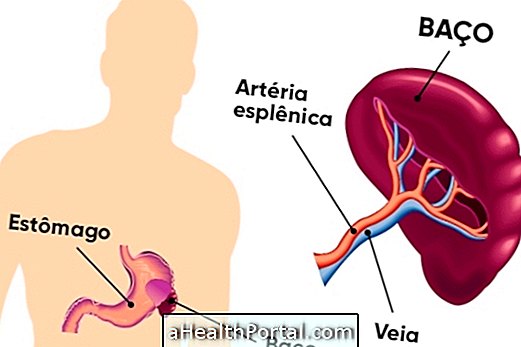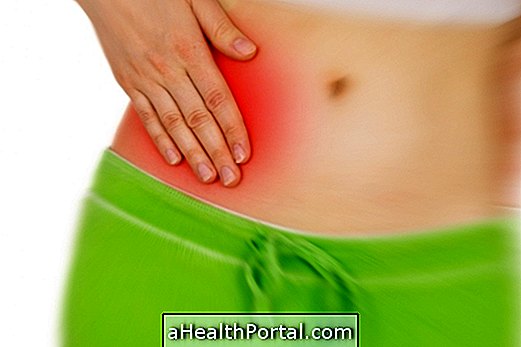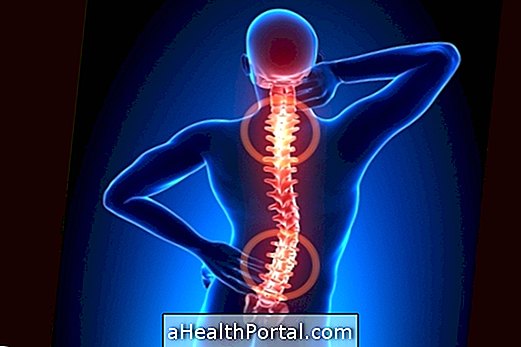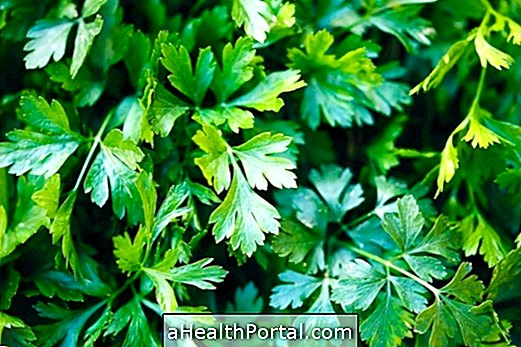Abdominal pain is mainly caused by changes in the bowel, stomach, bladder, bladder or uterus. The location where the pain appears may indicate the organ that is having problems, such as pain that appears on the left side of the abdomen at the top, may indicate a gastric ulcer, whereas the right one may indicate problems in the liver.
The reasons for the pain vary from simple situations, like excess of gases, until more complicated, like appendicitis or renal calculus. Therefore, if there is severe abdominal pain lasting more than 24 hours or accompanied by other symptoms such as fever, persistent vomiting and blood in the stool or urine, you should go to the emergency room or consult your GP.
Main causes of abdominal pain
Abdominal pain can occur in several places according to the affected organ:
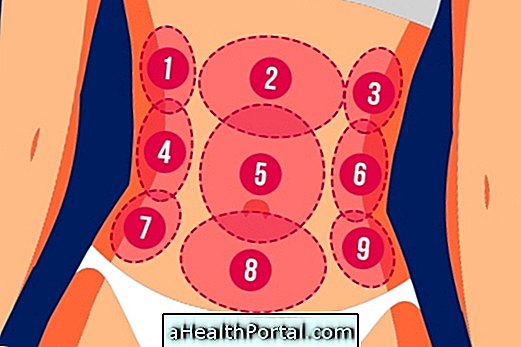
According to the place where the pain arises, the main causes are:
Location of Belly (Number corresponding to the region indicated in the image) | ||
| Right side | Medium | Left side |
| 1 | 2 | 3 |
Stone or inflammation in the gallbladder; Liver diseases; Problems in the right lung; Excess of gas. | Reflux; Indigestion; Gastric ulcer; Gastritis; Inflammation in the gallbladder; Infarction. | Gastritis; Gastric ulcer; Diverticulitis; Problems in the left lung; Excess of gas. |
| 4 | 5 | 6 |
Inflammation in the intestine; Excess gases; Inflammation in the gallbladder; Renal colic; Problems in the column. | Gastric ulcer; Pancreatitis; Gastroenteritis; Onset of appendicitis; Constipation. | Gastritis; Intestinal inflammation; Excess gases; Spleen disease; Renal colic; Problems in the column. |
| 7 | 8 | 9 |
|
Excess gases; Appendicitis; Intestinal inflammation; Ovarian cyst. | Menstrual cramps; Cystitis or urinary tract infection; Diarrhea or constipation; Irritable bowel; Bladder problems. | Intestinal inflammation; Excess gases; Inguinal hernia; Ovarian cyst. |
This rule is for the main causes of pain in the belly, but there are abdominal problems that cause pain in more than one place, such as pain caused by gases, or that manifest in places far from the organ, as in the case of inflammation of the gallbladder, for example.
Understand better when abdominal pain may be just a symptom of gas.
Persistent or chronic abdominal pain, which lasts for more than 3 months, is usually caused by reflux, food intolerances, inflammatory bowel disease, pancreatitis, intestinal worms or even cancer, and may be more difficult to identify.
Types of Abdominal Pain
How pain manifests can also help you find your cause, such as:
- Burning pain: The pains that arise in the stomach due to gastritis, ulcer and reflux usually appear with the sensation of burning or burning in this region.
- Colic pain : Problems in the gut, such as diarrhea or constipation, and also the gall bladder can manifest as cramps. They also appear in pains caused in the uterus, such as menstrual cramps.
- Pointed or pinched : pain caused by too much gas, or by inflammation in the abdomen, such as appendicitis or inflammation of the intestines. See other signs of appendicitis.
There are also other types of abdominal pain, such as feeling full or swollen, squeezing pain or nonspecific pain sensation, when the person does not know how well the pain appears.
In these cases, the cause is usually only identified after diagnostic exams such as ultrasound and blood tests or through personal history, done by the general practitioner or gastroenterologist.
When it can be serious
There are alarm signals that, when they appear in conjunction with the pain, may indicate troubling illnesses, such as inflammation or serious infections, and in the presence of any of them, it is advised to seek emergency room care. Some examples are:
- Fever above 38ºC;
- Persistent or bloody vomiting;
- Stool bleeding;
- Intense pain that makes you wake up in the middle of the night;
- Diarrhea with more than 10 episodes per day;
- Weight loss;
- Presence of apathy or pallor;
- Pain that appears after falling or knocking.
A symptom that deserves special attention is the pain in the region of the stomach, in the burning, as it may indicate infarction, so if this pain is accompanied by shortness of breath, cold sweat, chest pain or radiating to the arms, if you seek immediate care in first aid.
Learn how to correctly identify a heart attack.

How is the treatment done?
The treatment of pain in the belly depends on its cause and its location. Thus, the general practitioner, or the gastroenterologist, indicates the most appropriate treatment after physical, blood and, if necessary, abdominal ultrasound examination. Some of the most commonly used remedies for treating minor problems are:
- Antacids, such as Omeprazole or Ranitidine: used in cases of pain in the stomach region caused by poor digestion, reflux or gastritis;
- Anti-flatulent or antispasmodic, such as dimethicone or buscopan: relieve pain caused by excessive gas or diarrhea;
- Laxatives, such as lactulose or mineral oil: speed up the intestinal rhythm to treat constipation;
- Antibiotics, such as amoxicillin or penicillin: are used to treat infections in the bladder or stomach, for example.
In addition to the use of these medicines, in some cases, the doctor may also recommend making changes in the diet, such as avoiding frying and soda, as well as eating less flatulent foods such as beans, chickpeas, lentils or eggs, since diet is one of the main causes of abdominal pain.
In more severe cases where there is infection or inflammation of an organ, such as in appendicitis or inflammation of the gallbladder, it may be recommended to have surgery to remove the affected organ.
Check out some home remedies to treat the main causes of pain in the belly.
Abdominal pain in pregnancy
Abdominal pain in pregnancy is a frequent symptom that arises due to changes in the woman's uterus and constipation, characteristic of this phase.
However, when pain worsens over time or is accompanied by other symptoms such as bleeding, it can indicate more serious problems, such as ectopic pregnancy or miscarriage, and in these cases, the obstetrician should be consulted as soon as possible.
In addition, abdominal pain at the end of pregnancy is also normal and is usually related to stretching of the muscles, ligaments and tendons due to belly growth, so the pregnant woman should rest several times during the day.
Learn how to identify and what to do if you experience abdominal pain in pregnancy.
